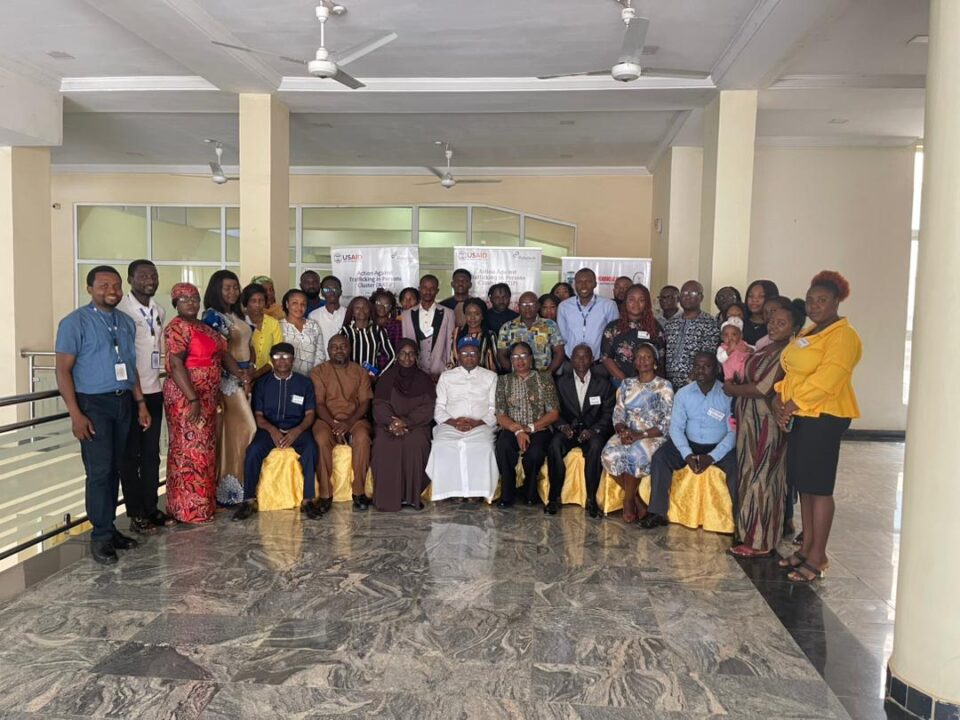Chuks Oyema-Aziken
Participants at a three-day training for journalists who report human trafficking and irregular migration issues have decried the alarming rate of Nigerians who have fallen prey to criminal syndicates.
A call have therefore been made for more funding for the National Agency for the Prohibition of Trafficking in Persons (NAPTIP) to enable the agency perform effectively.
The training which was facilitated by the Justice Development and Peace Commission, JDPC, is aimed at equipping journalists with the right skills in reporting on the subject matter
Mr Nasiru Muazu Isah, a resource person at the meeting charged journalists to stick to the ethics of the profession in their reportage.
He also stressed the need for investigative reporting, urging media professionals to go extra miles to uncover the heinous crime.
In his interactive class session, Mr Isah exposed to journalists how to detect fake news. He further advised them to by all means avoid the spread of fake news as it can trigger crisis in a peace loving society.
Isah advocated the use of social media, stressing that it is a powerful platform for the campaign against irregular migration and Trafficking in Persons issues.
The facilitator who emphasised that no one is completely immune from human trafficking urged individuals to be sensitive and report suspected cases to the appropriate authorities.
JDPC Director of Programmes, Mr Timothy Ejeh, on his remarks decried the low level of funding for NAPTIP.
He said that NAPTIP was doing a whole lot as an agency of government trying to counter trafficking in persons in Nigeria with a limited budget.
According to him, currently NAPTIP has been saddled with the responsibility of regulating the Act of protection and prohibition of persons against violence.
“This has come into the work of the agency without any budget line for it.’’
He said that the agency had currently been asked to station at the border post and at the port of entry into the country.
He said this was to see how it could clamp down traffickers, adding that without enough resources the agency might not perform well.
“If you don’t have enough resources, manpower and personnel at various borders, how can you counter trafficking in persons. So, there is need for NAPTIP to have enough funding to be able to clamp down on traffickers.
“With enough funding, the agency will also be able to help victims of trafficking because there are a lot of them in NAPTIP shelters; currently NAPTIP is having 14 shelter camps across the country.
“NAPTIP has to feed these people, provide medications, and protect them and others which require a lot of funding.
“NAPTIP is really in need of funding, so there is need for an upward review of its funding,” he said.
Ejeh also said that there was nothing wrong for a country to have private shelters, apart from government owned, but owners of such shelters must align with the minimum standard of establishment issued by NAPTIP.
“There are various shelters privately owned, perpetrating evil in the name of running shelters for vulnerable victims of human trafficking and Sexual and Gender Based Violence (SGBV).
“The commission has discovered that some persons are abusing the privilege of having private shelters, by housing little children and turning such shelters into baby factory.
“They also use the children for their own illicit and nefarious trade,” he said.
He said that owners of private shelters must comply with the minimum standard of regulation in line with the regulation issued by NAPTIP as the authority in charge of such issues.
Executive Director Justice Development and Peace Commission, JDPC, Rev. Fr. Solomon Uko charged journalists to make use of the knowledge they gathered at the training to report effectively about human trafficking issues.
“Our expectation is that the knowledge we got from here will be escalated to the entire world on the dehumanising effect of human trafficking, and the fact that human beings must be who they are, and must not be traded like commodities.
“People should say something when they see something that is unwholesome or degrading in any form to the point of being trafficked.
“Journalists should escalate the knowledge obtained from here, and help others know the effect of human trafficking in our society,” he said.
On her part, the representative from NAPTIP, Mrs Nnoli Cynthia outlined some forms of Trafficking in Persons namely; Forced labour, for criminal activities, exploitation of women sexually, harvest of human organs, people smuggling among others.
She also noted that the agency’s platform is active at all times to report suspected cases. She however assured that the identity of the informant will be concealed.
“There is a call centre that works around the clock and the NAPTIP response squad. Call the NAPTIP hotline 07030000203 (toll free). The I report number *627#.
“The agency also has various platforms via which to report. NAPTIP is present on all the social media platforms, (Facebook, Instagram, Twitter) You can access the right information on the website www.naptip.gov.ng and send mails to info@naptip.gov.ng”, she noted.
The 3 day training had the support of United States Agency International Development, USAID and Strengthening Civil Advocacy and Local Engagement, SCALE, Palladium.


